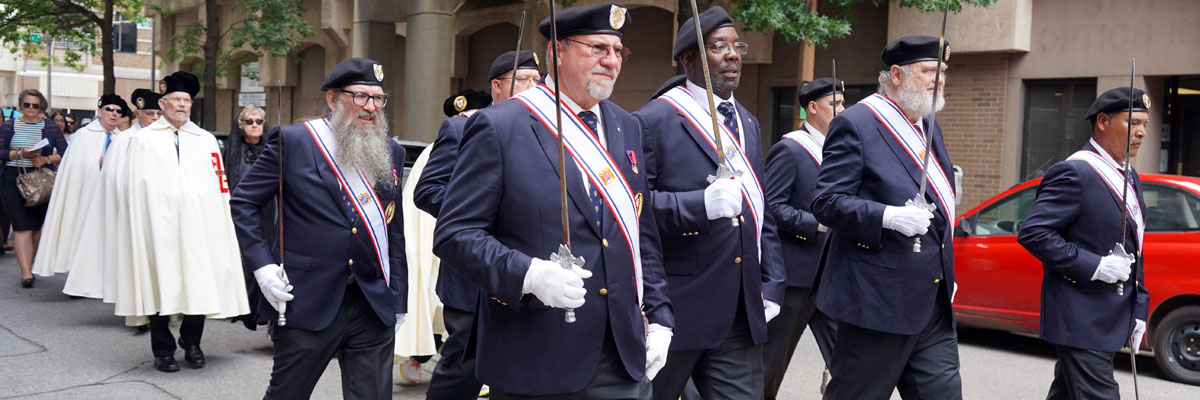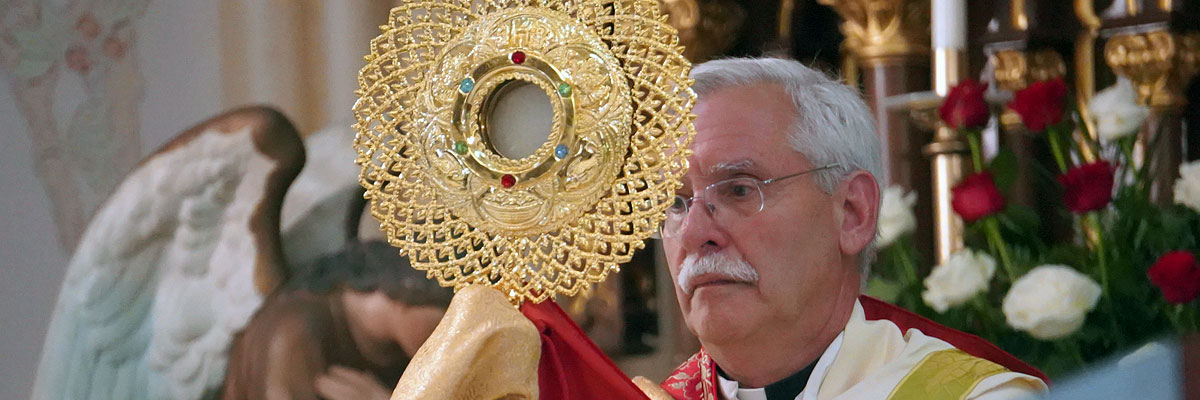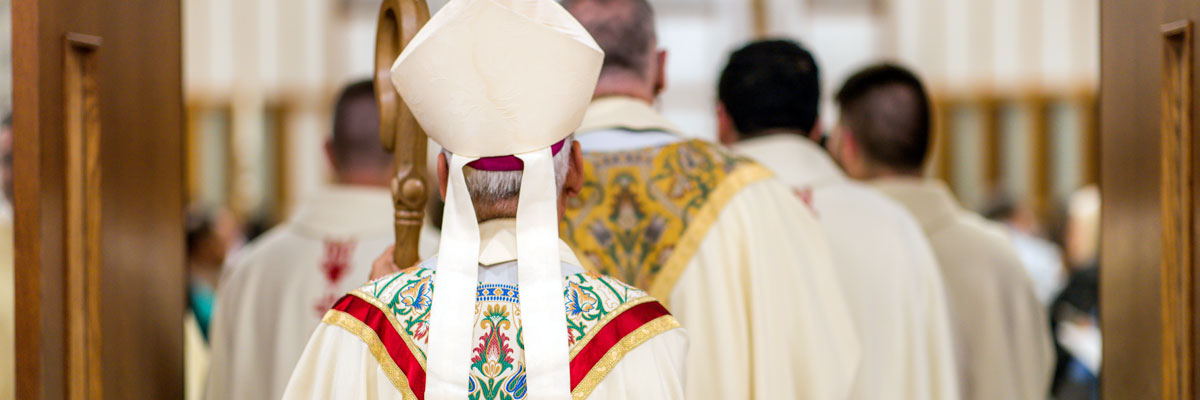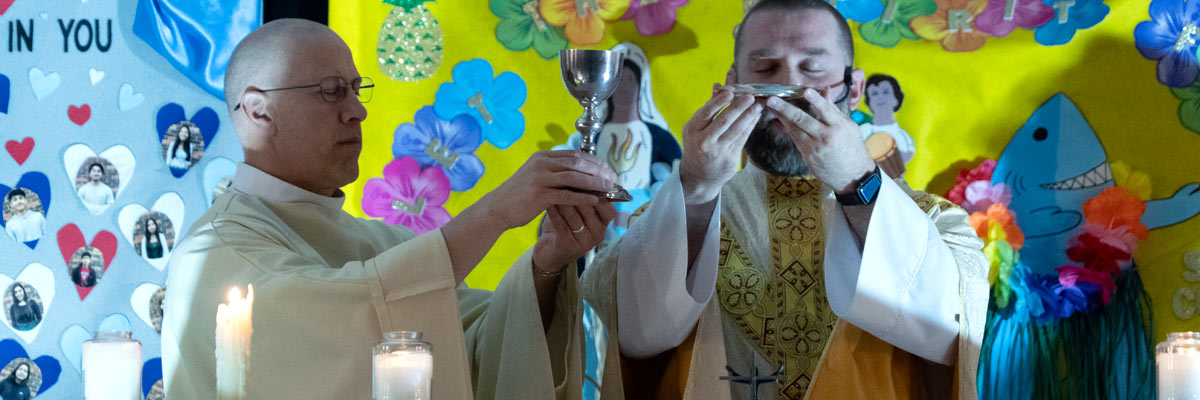Official Website of the
Catholic Diocese of Little Rock
Third Sunday of Easter, Year A 2023
Published: April 23, 2023
Bishop Anthony B. Taylor preached the following homily during a Mass to celebrate the 100th anniversary of St. Edward Church in Texarkana on Sunday, April 23, 2023.

Bishop Taylor
If God is everywhere, always, why do we have special places to encounter him, like this church whose 100th anniversary we celebrate today? Churches like this where God is especially present — and special days like Holy Thursday, Good Friday and Easter Sunday?
Isn't God fully and infinitely present in the woods, on mountain tops and in your home? Isn't he fully and infinitely present in every sunset, every morning when you wake up and, as we will recall with gratitude on Mother’s Day, every time a woman gives birth? If God is everywhere always, why are some things sacred and others not? Why are some days sacred and others not?
In today's Gospel, which took place on Easter Sunday itself, we have two disciples of Jesus walking from Jerusalem back to their hometown of Emmaus seven miles away, which would have taken a couple of hours. And as they were walking along, Jesus sidled up to them and struck up a conversation with them, but they didn't recognize him.
He was there all right, really present, but they didn't know it. It is only when he said the blessing, broke the bread and gave it to them that their eyes were opened to the presence of the one who had been with them all along, whereupon he vanished from their sight.
He was present right there with them, but they didn't know it. As disciples, they had seen him many times before, but physical eyesight did not reveal his presence to them. Jesus explained why the Messiah had to suffer a brutal, unjust death but would also rise from the dead, which is why the women had found his tomb empty that very morning.
He told them what the Bible said, but notice: Scripture alone was not sufficient to reveal his presence to them. He was there all right, really present, but they didn't know it. It is only when he said the blessing, broke the bread and gave it to them that their eyes were opened to the presence of the one who had been with them all along, whereupon he vanished from their sight.
Notice that he was more really present in the breaking of the bread than he was walking with them and explaining Scripture to them, not because of anything in him, but rather because of something in them: God's grace working in them through the Eucharist that opened their eyes to his sacramental presence, thus making him — who is present everywhere always — more really present in every meaningful sense at that particular moment and in that particular place than before.
And now that they could now recognize him in the breaking of the bread, his physical presence was no longer required and so he vanished from their sight. And that is why God is more really present in the sacraments and in every tabernacle than he is out there in the woods or on a mountain top. Or even in the reading and discussing of Scripture taken by itself.
Namely, in those sacramental moments where God's grace opens our eyes and our hearts to a deeper encounter with him personally — and thereby to experience his healing, life-giving presence ourselves. Sacraments are all about encountering God's mercy and it is this heart-opening encounter with Jesus' mercy that makes a sacrament a sacrament.
And this applies to all of the sacraments, including confirmation. But it is also true that for the encounter to have its full effect, we have to open our own hearts to Jesus — to Jesus really present to us — by making ourselves really present to him.
If you do this, your life will be changed forever. Just like the two disciples in today's Gospel whose eyes were opened at that first Eucharist following Jesus' resurrection and who then ran back to Jerusalem from Emmaus to tell the others what had taken place on the way and how he was made known to them in the breaking of the bread.








